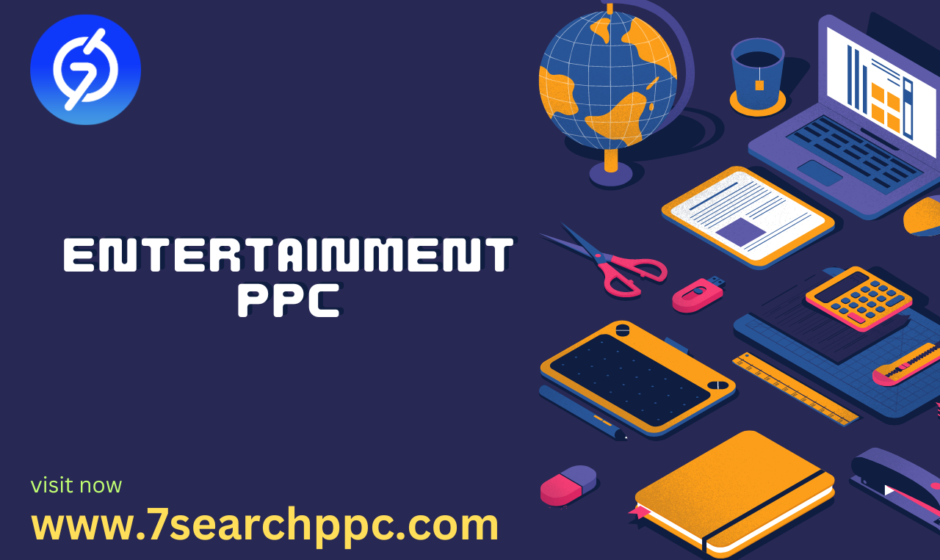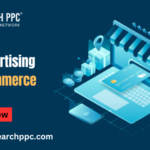In today’s fast-paced digital world, entertainment companies face fierce competition to capture and maintain audience attention. Pay-Per-Click (PPC) advertising has emerged as a powerful tool for driving targeted traffic, increasing engagement, and maximizing return on investment (ROI). When used correctly, Entertainment PPC can help brands dominate the media landscape, enhance their entertainment marketing efforts, and create lasting impressions. This article explores strategies to succeed with Entertainment PPC and how it can drive ROI for entertainment businesses.

Understanding the Basics of Entertainment PPC
PPC advertising allows advertisers to place ads on platforms like Google, Bing, or social media, paying only when users click on their ads. For the entertainment industry, PPC offers a targeted and data-driven approach to reach the right audience, whether it’s promoting movies, TV shows, music events, or home entertainment services. Entertainment PPC is effective in creating visibility, driving website traffic, and fostering conversions for entertainment-focused campaigns.
Benefits of PPC for Entertainment Marketing
For entertainment marketers, PPC offers multiple benefits that contribute to the overall success of their advertising efforts:
- Targeted Reach: Entertainment PPC allows you to target specific audiences based on demographics, interests, or behaviors. This ensures that your ads reach those most likely to engage with your content, such as fans of a particular genre or streaming service users.
- Cost-Effective: Since advertisers only pay when a user clicks, PPC is a cost-effective way to maximize ad budgets. It also allows for better control of ad spend, which can be adjusted in real-time.
- Measurable Results: Entertainment PPC provides real-time analytics, enabling advertisers to track performance and adjust campaigns accordingly. Metrics such as click-through rate (CTR), conversion rate, and ROI help optimize campaigns for better results.
Key Strategies for Maximizing ROI with Entertainment PPC
Choose the Right Platforms for Entertainment Ads
When launching an Entertainment PPC campaign, it’s crucial to select the appropriate platforms based on your target audience. Popular platforms include Google Ads, YouTube, and social media sites like Facebook, Instagram, and TikTok. Each platform offers unique benefits, and choosing the right one can significantly improve the performance of your campaign.
- Google Ads: This platform offers the ability to target search intent, making it ideal for movie releases, ticket sales, and entertainment subscriptions. Display ads on Google’s network can also increase brand awareness.
- YouTube Ads: As a leading platform for video content, YouTube is perfect for promoting trailers, behind-the-scenes footage, or music videos. TrueView ads allow advertisers to engage with users and only pay when the video is watched.
- Social Media Ads: Platforms like Facebook, Instagram, and TikTok allow for highly targeted campaigns. Social media users are more likely to engage with interactive ads such as polls, stories, and live events, making it an ideal space for entertainment ads.
Craft Engaging Ad Copy and Creative Elements
The success of Entertainment PPC relies heavily on the quality of ad copy and creative elements used in the campaign. Ad copy should be concise, engaging, and align with the expectations of the entertainment audience. To boost engagement:
- Use enticing headlines that capture attention quickly.
- Include strong calls-to-action (CTAs) like “Watch Now” or “Get Tickets.”
- Highlight exclusive content or early access to drive urgency.
Creative elements, such as images or videos, should be visually appealing and reflect the nature of your entertainment product. For example, for movie promotions, a vibrant poster or teaser video can generate excitement.
Utilize Audience Targeting and Segmentation
For Entertainment PPC, precise audience targeting is key to maximizing ROI. By leveraging advanced targeting features, advertisers can segment their audiences by location, age, interests, or behaviors. This level of segmentation ensures that your entertainment ads are reaching the right people at the right time.
- Interest-based Targeting: Focus on users who have shown interest in specific entertainment genres (e.g., comedy, drama, music) or platforms (e.g., Netflix, Hulu, gaming consoles).
- Behavioral Targeting: Advertisers can target users based on their online behavior, such as past purchases or video-watching habits. For example, someone who has previously purchased concert tickets might be interested in similar future events.
- Retargeting: Retargeting allows you to reach users who have already visited your site or engaged with your content but haven’t yet converted. Retargeting ads can remind users to complete their purchase, subscribe to a service, or buy a movie ticket.
Optimizing for Different Ad Formats
In the entertainment industry, different ad formats can cater to different objectives. Understanding which format works best for your campaign is essential in maximizing ROI.
Native Ads for Seamless Engagement
Native ads blend seamlessly into the content that users are already consuming. These ads are non-intrusive and feel more organic, making them perfect for promoting entertainment content such as movie reviews, event announcements, or exclusive interviews. Native ads can be used on social media, news sites, or streaming platforms to increase brand awareness without disrupting the user experience.
Display Ads for Visual Appeal
Display ads are highly visual and are ideal for brand building. For entertainment businesses, these ads can include movie posters, concert graphics, or series thumbnails. The key is to ensure that the visuals are captivating enough to draw users’ attention and encourage clicks.
Video Ads to Engage Audiences
Video ads are particularly effective in the entertainment industry, given the visual nature of the content. YouTube, Instagram, and TikTok are ideal platforms for showcasing trailers, behind-the-scenes footage, or promotional clips. By offering a glimpse into the entertainment experience, video ads can help increase engagement and drive conversions.
Tracking and Measuring PPC Campaign Performance
Entertainment PPC campaigns need constant monitoring to ensure optimal performance. Key performance indicators (KPIs) such as CTR, conversion rate, cost-per-click (CPC), and overall ROI should be tracked regularly. Use tools like Google Analytics, Facebook Ads Manager, or third-party software to analyze how well your campaigns are performing.
- Click-Through Rate (CTR): A high CTR indicates that users find your ad appealing enough to click on it. If CTR is low, you may need to adjust your ad copy or targeting.
- Conversion Rate: This shows how many users who clicked on your ad completed the desired action (e.g., ticket purchase, subscription). Optimizing landing pages can improve conversion rates.
- Cost-Per-Click (CPC): Lowering CPC without compromising on ad quality is key to maximizing ROI. Experimenting with bidding strategies can help reduce CPC.
Enhancing Home Entertainment Advertising with PPC
Home entertainment has grown significantly in recent years, and PPC ads are a great way to promote home-based services like streaming platforms, video rentals, and virtual events. Entertainment PPC for home entertainment should focus on capturing the digital consumer’s attention.

- Streaming Promotions: Use PPC to highlight new shows, limited-time promotions, or exclusive content on platforms like Netflix, Disney+, or Amazon Prime.
- Virtual Events: As more events shift online, PPC ads can drive signups for virtual concerts, comedy shows, or exclusive live streams.
Common Mistakes to Avoid in Entertainment PPC Campaigns
While Entertainment PPC offers numerous opportunities, there are common mistakes that can hinder success. Avoid these pitfalls to ensure your campaigns are as effective as possible:
- Ignoring Mobile Optimization: Many users engage with entertainment content on their phones. Ensure that your ads and landing pages are optimized for mobile to avoid losing potential conversions.
- Overlooking Negative Keywords: Negative keywords help filter out irrelevant searches that could waste your budget. For example, if you’re promoting a movie, you may want to exclude searches for unrelated films.
- Focusing Solely on CTR: While CTR is important, it’s not the only metric to track. Make sure your ads are not just getting clicks, but also driving conversions and ROI.
Conclusion
Entertainment PPC, when executed with precision, can drive significant returns for brands in the media and entertainment advertising. By carefully selecting platforms, crafting engaging ad copy, targeting the right audience, and continuously monitoring performance, businesses can maximize their ROI and stay ahead of the competition. Whether promoting movies, music, or home entertainment, the right PPC strategies can make all the difference.
Frequently Ask Questions (FAQs)
What is Entertainment PPC?
Ans. Entertainment PPC is a pay-per-click advertising strategy focused on promoting entertainment content such as movies, music, TV shows, and events to targeted audiences.
How do native ads work in entertainment marketing?
Ans. Native ads blend into the content users are already viewing, making them less intrusive and more engaging for promoting entertainment content such as movie trailers, event announcements, or show releases.
What metrics should I track in Entertainment PPC campaigns?
Ans. Important metrics include click-through rate (CTR), conversion rate, cost-per-click (CPC), and overall ROI. Tracking these will help you optimize your campaigns for better performance.



